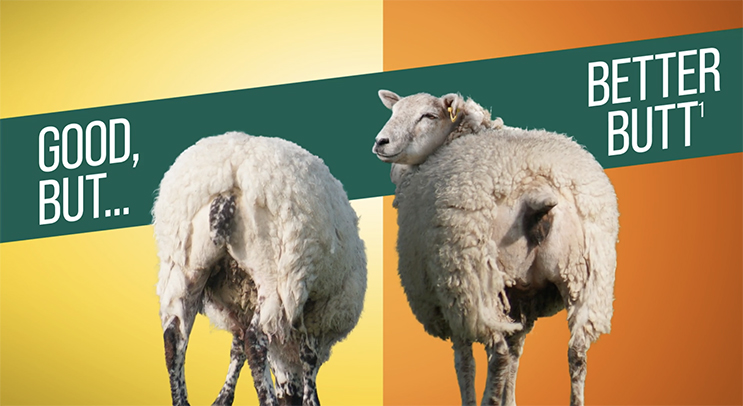Elanco Animal Health has launched the Better Butt campaign to highlight how farmers can take flock performance to the next level with strategic worm management.
The campaign aims to demonstrate the direct link between proactive parasite management and flock performance, while also providing practical tools for vets to engage farmers in conversations around worm control on-farm.
Fiona Hutchings, ruminant technical manager at Elanco Animal Health, said: “The Better Butt campaign encourages vets and farmers to work together to strategically plan mid- to late-season break doses and quarantine treatments, using the newer group wormers, such as Zolvix, to minimise worm burdens and support healthy growth.”

She said the campaign advises farmers to move away from solely relying on visible signs of worm burdens before taking action, because lamb performance has already been compromised by the time visible signs are present.
“Even the best stockman, or experienced sheep person, will struggle to spot an early worm burden, and by the time it’s visible, the burden is usually high,” explained Mrs Hutchings.
“Reductions of up to 50% in growth rates can occur before visible symptoms appear[1], resulting in extended finishing times and higher feed demands.”
The campaign uses a traffic light system to help farmers understand worm burden impacts and encourages treatment interventions when animals tip into the amber zone.
“Lambs will only grow when their daily feed intake exceeds the amount they need to maintain their weight,” said Mrs Hutchings.
“When lambs have a low worm burden, they’re in what we call the green zone, which means they have enough energy for both maintenance and growth.
“However, when this burden increases and they tip into the amber zone, this is when you’ll start noticing changes in the time taken for lambs to finish as worms begin to damage the gut meaning the lambs can’t utilise their feed as well.”
She added: “Once worm burdens are in the red zone, visible signs such as poor fleece condition and scouring can be seen; it’s at this point that little to no feed is being used for growth due to damage to the gut.”
Mrs Hutchings said it is vitally important to spot worms in the amber zone, but as clinical signs only appear in the red zone, vet expertise is key.
“Demonstrating and helping farmers to understand the benefits of carrying out regular faecal egg counts (FECs) and weight monitoring to address worm burdens before they impact performance, is where vets and advisers can play a key role,” she explained.
“Many sheep farmers are already doing a brilliant job of managing their stock, but we want to show them that there could be an opportunity to unlock more potential from their flock.”


